This year has been no exception.
Way back in January regular visits to the resident Black Redstart on a nearby headland to both photograph and feed began to pay dividends with the bird becoming very confiding.
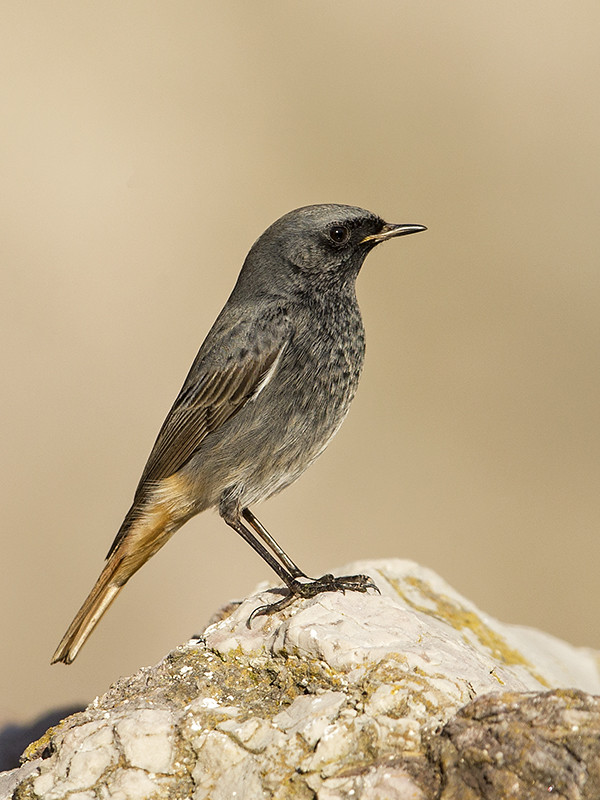
It wasn't the only bird that benefited though. It was regularly bullied by the resident Robin and a couple of Dunnock were quick to spot an opportunity for an easy meal too.
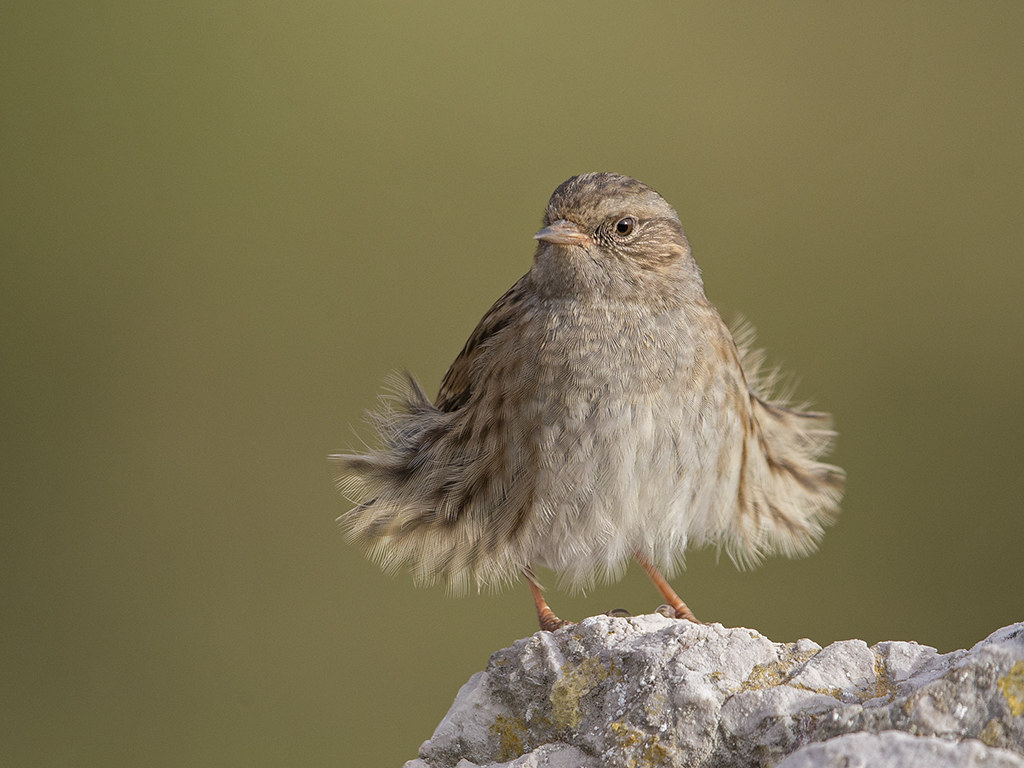
I'm lucky enough to live in a woodland setting too so my bird feeders are pretty popular during the winter months and a pair of Sparrowhawks take advantage of the feeding.
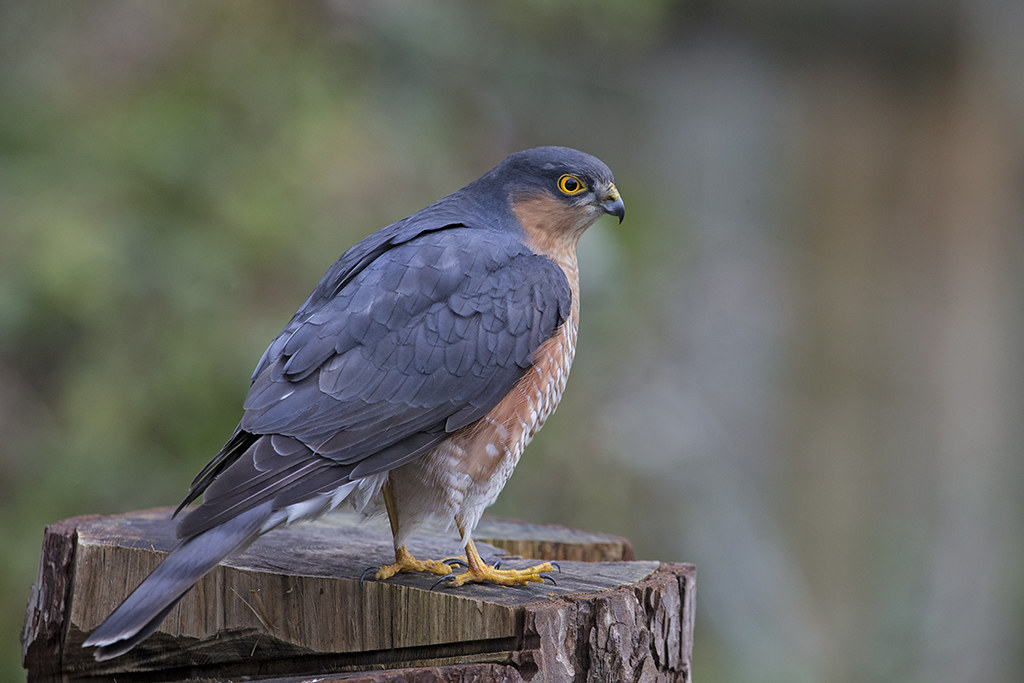
I'm not in to driving long distances for my birding preferring to put the money towards holidays instead. Wife Claire and I plan to take a break both before and after Christmas. This year we went to Cuba for most of February. The cold and damp of winter is a bit off putting but the need to get a "photo fix" had me venturing over to Anglesey, an island just along the coast from where I live.
In recent years attempts have been made to eradicate the alien Grey Squirrels and encourage the spread of the native Red's.
It's worked incredibly well and now this is one of the best spots in the UK to see Red Squirrels.
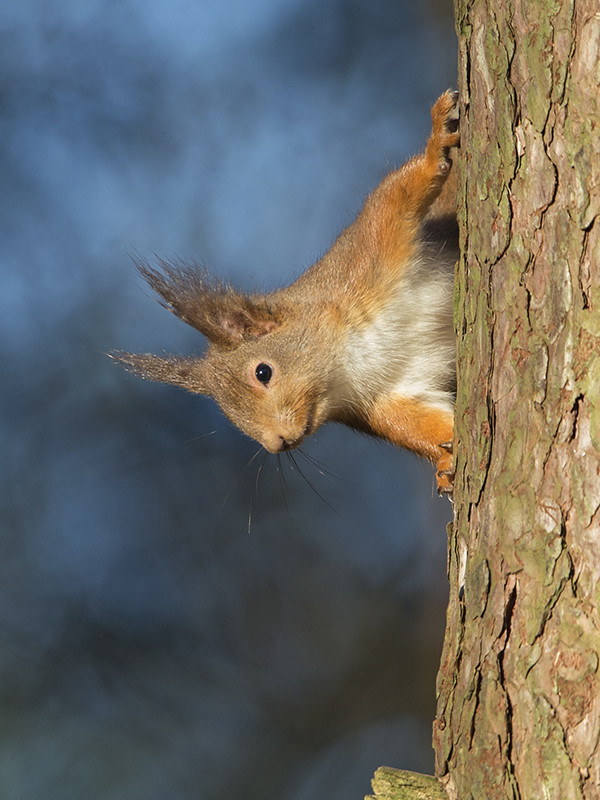
Birds such as over wintering Jays benefit from the food put down for the squirrels too.
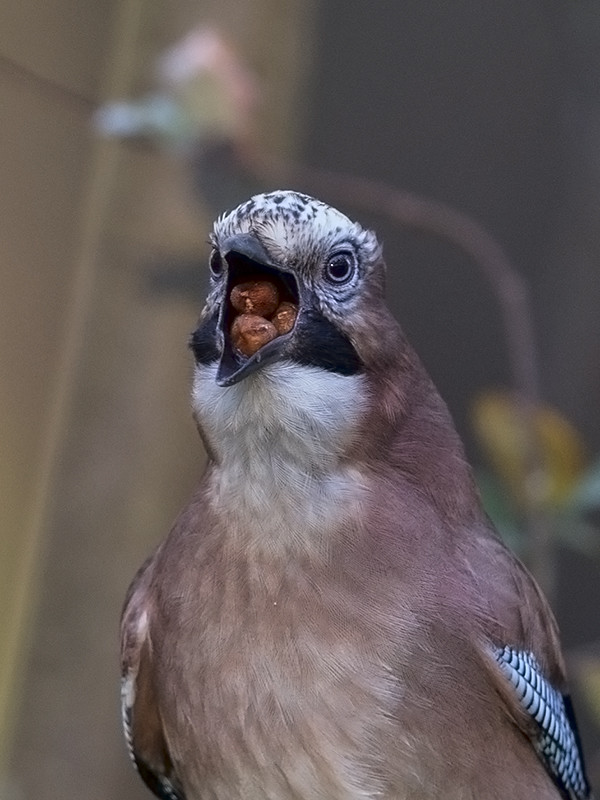
And just along the road the Maltraeth marsh area holds over wintering Pintail ducks as well as the odd rarity.
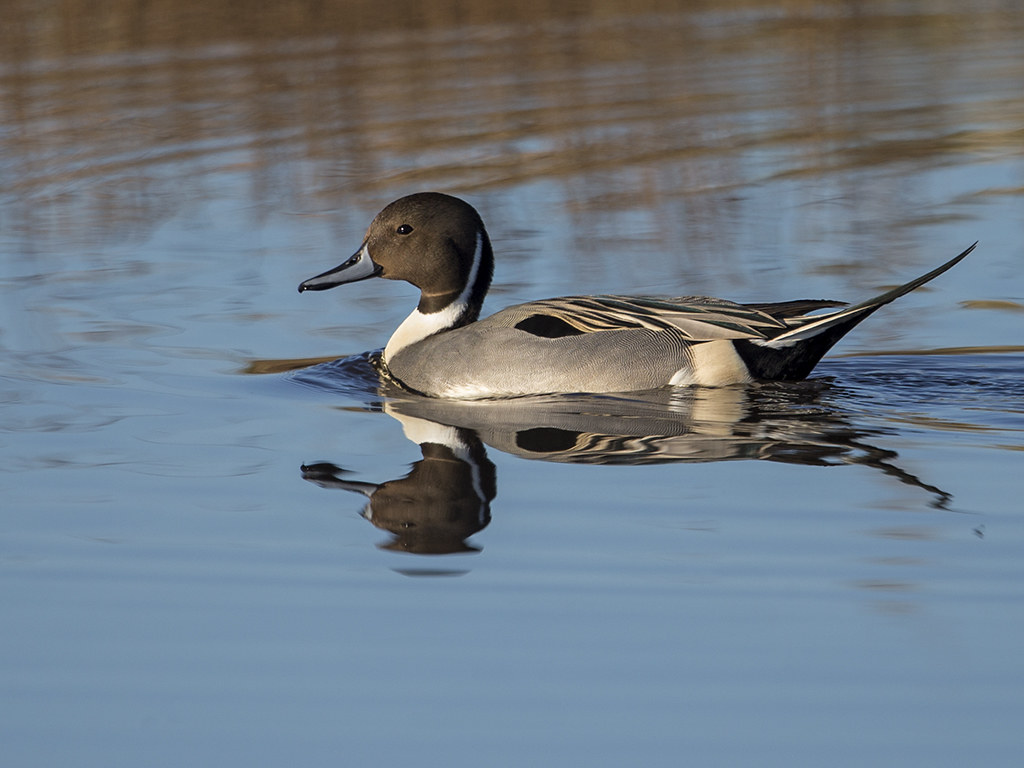
One of the best spots in the UK for watching Starling murmurations is right on my doorstep at the local RSPB nature reserve. They put on an incredible show as they gather in stunning formations before dropping down to roost in the redheads.
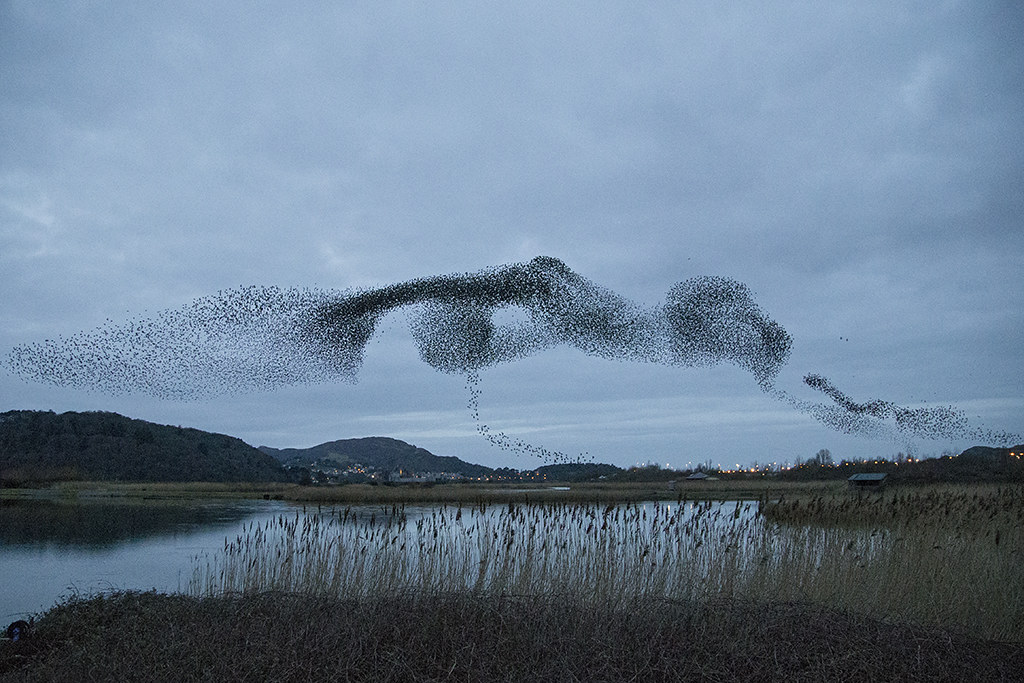
Your imagination can go wild and they are truly a magnificent sight to rival anything the natural world can produce anywhere in the world.
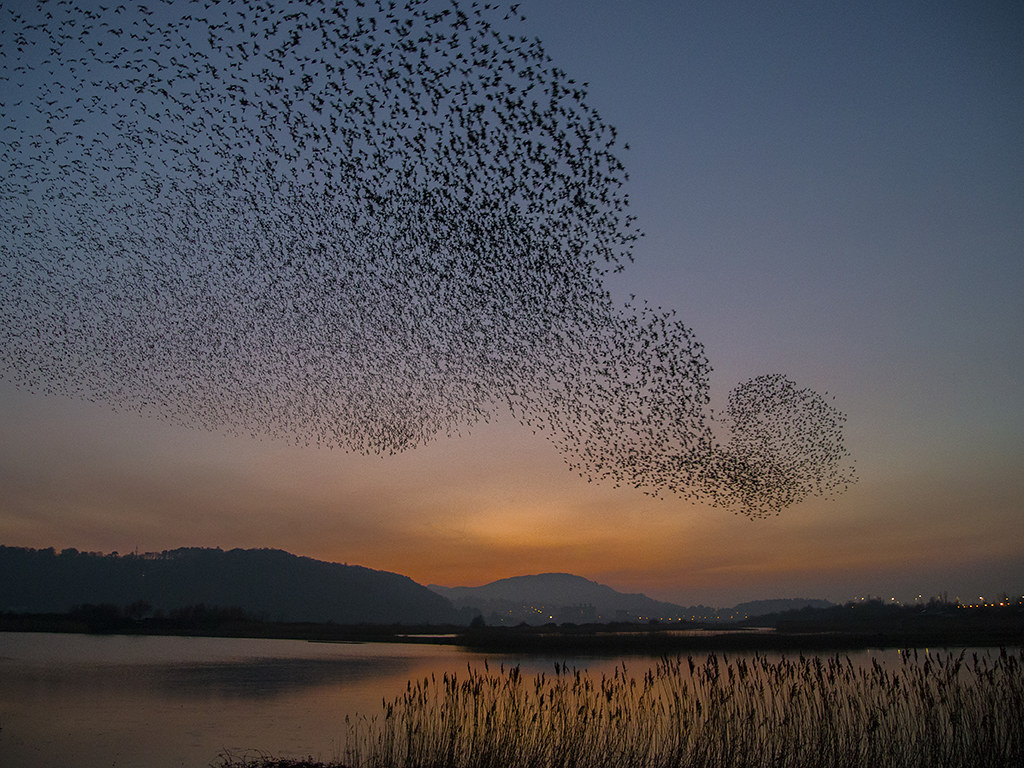
Another rarity in the southern half of the UK particularly is the Black Grouse. They gather at dawn every morning at their usual lekking spot and you need to get there well before first light to avoid any disturbance.
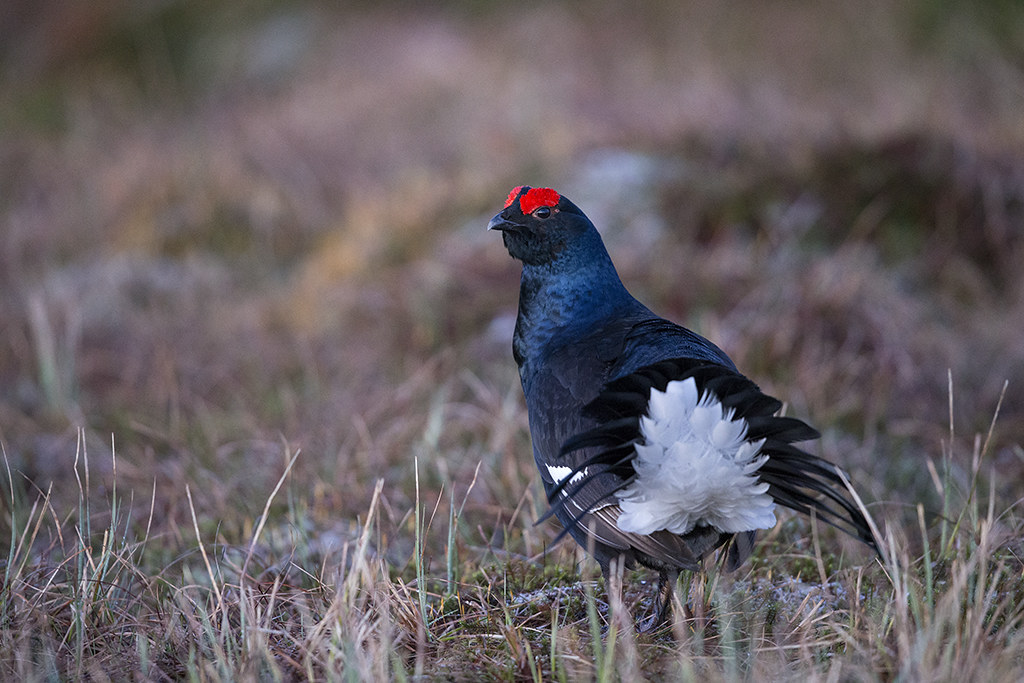
It's an hours drive to the site but the unearthly hour I have to get up does reward those who make the effort.
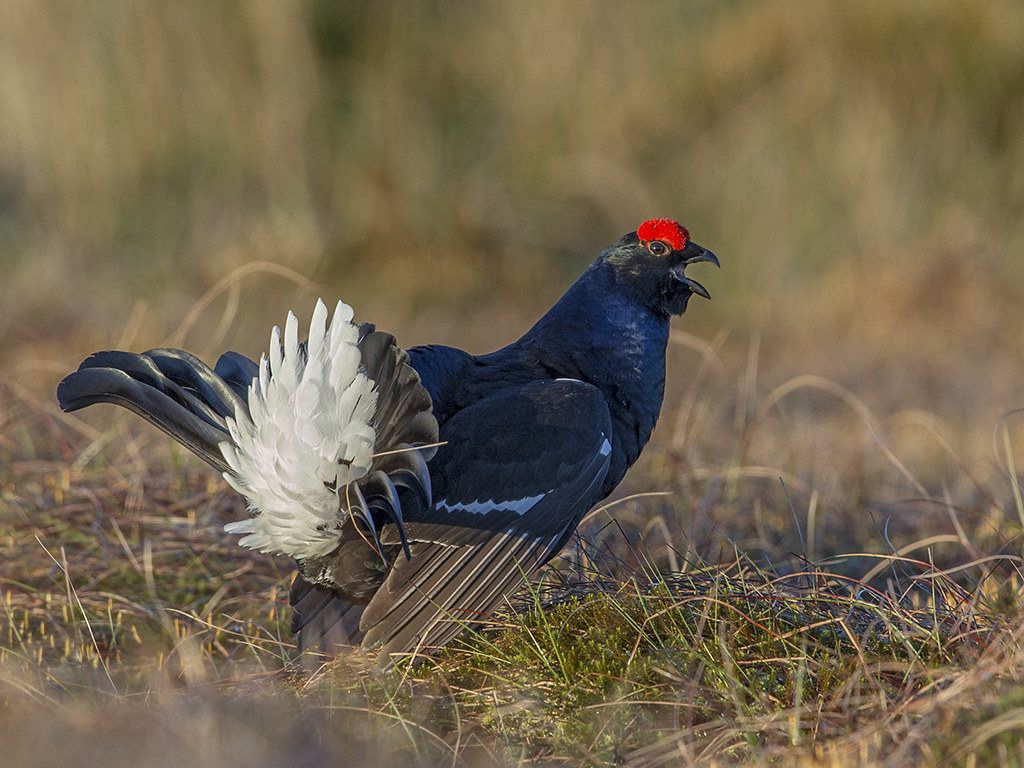
In to April and May it's wonderful to see the new growth and spring flowers that bring with them the arrival of the summer migrants.
One of the first to return to our garden is the Chiffchaff
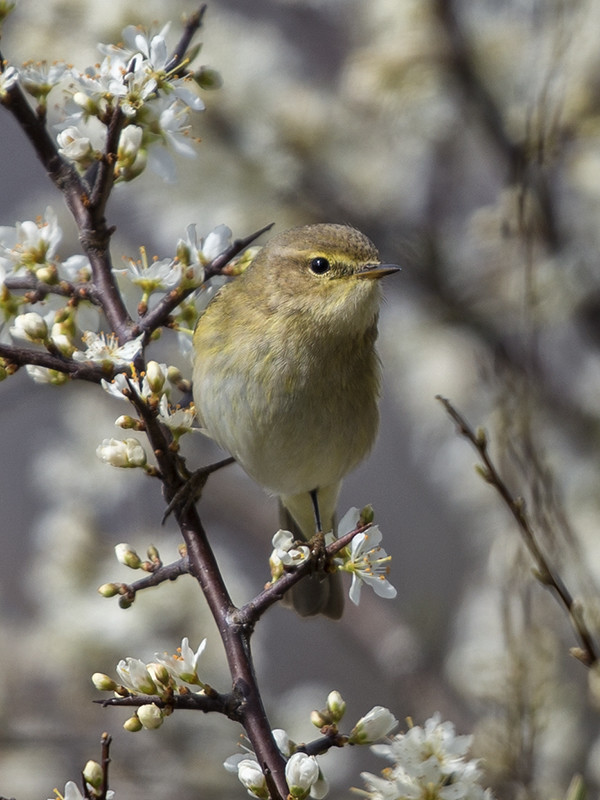
The delight of hearing him for the first time soon becomes a bit of an irritation with his constant Chiffchaff call as he claims his territory. The numbers have increased in recent years too and we have several pairs in and around our garden. It's a nice reward to see their offspring later in the summer too.
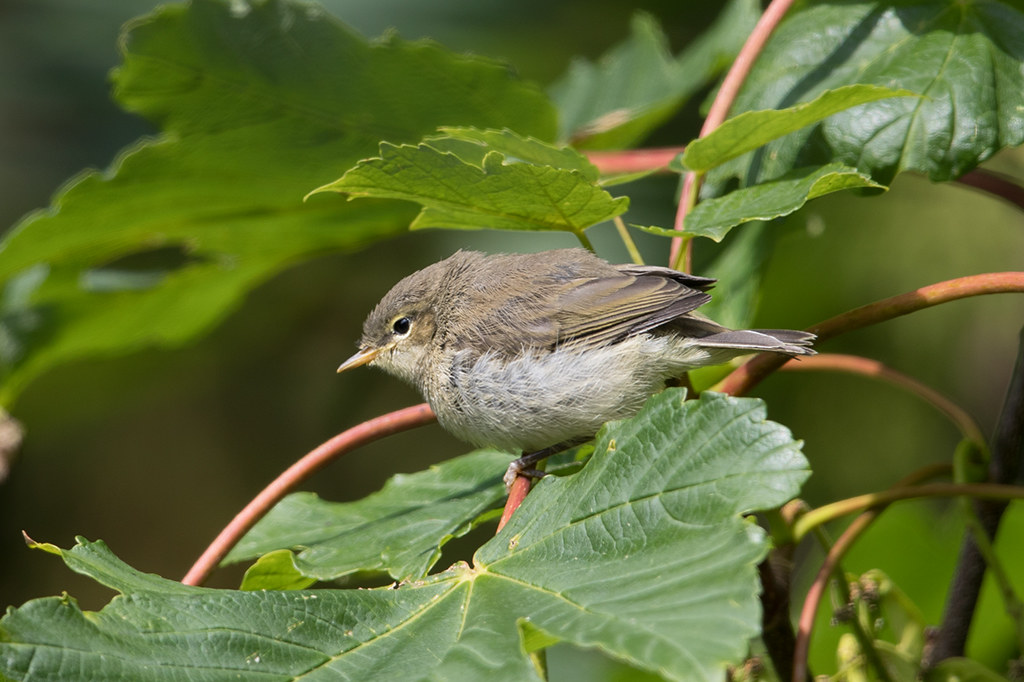
One of the more furtive birds is another regular summer visitor, the Blackcap. They feed mainly on insects but on their first arrival eek out their diet with Ivy berries too. I have plenty of them around and about.
One of my favourite shots of the year was this group of newly fledged chicks.
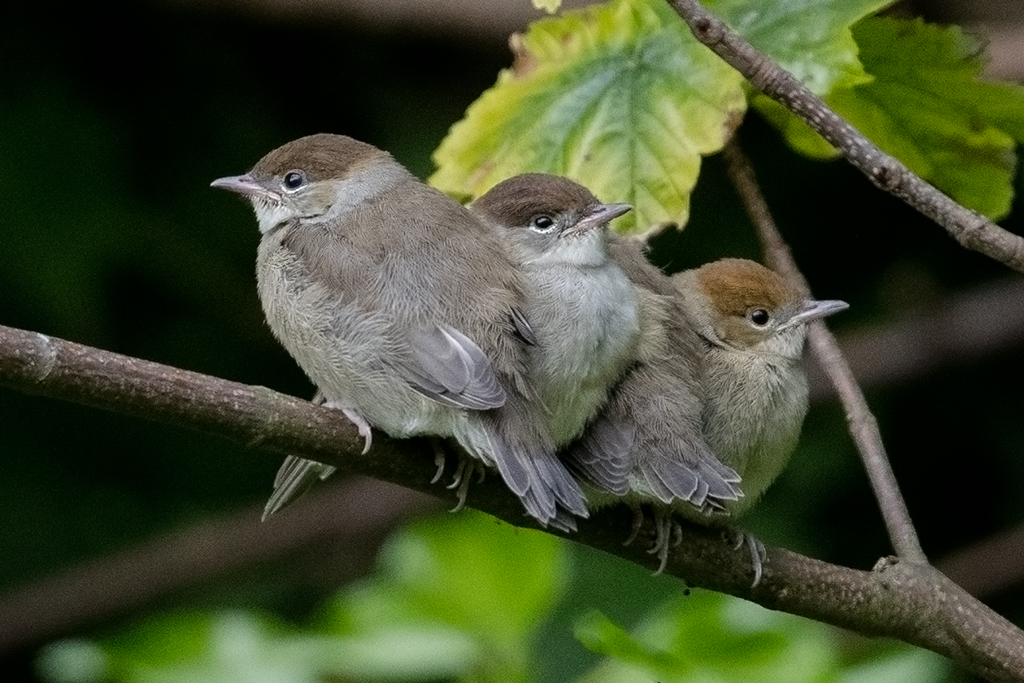
A sight I hadn't seen before and it was truly heart warming. Their last moments together before splitting up and heading off their own separate ways. Hopefully they will end up back here next year.
We had a pretty miserable spring here this year, wet and damp. I had arranged a week's photography trip to Iceland with my regular travel companion and near neighbour Mike. We were watching the weather there with trepidation. It was still covered in snow in the area we were booked to stay. As it turned out we had better weather than here in the UK.
By the time the weather and light had improved sufficiently most birds had bred and their chicks fledged. I have to admit to being a fair weather birder when at home.
I just caught up with a Grey Wagtail family before they parted company.
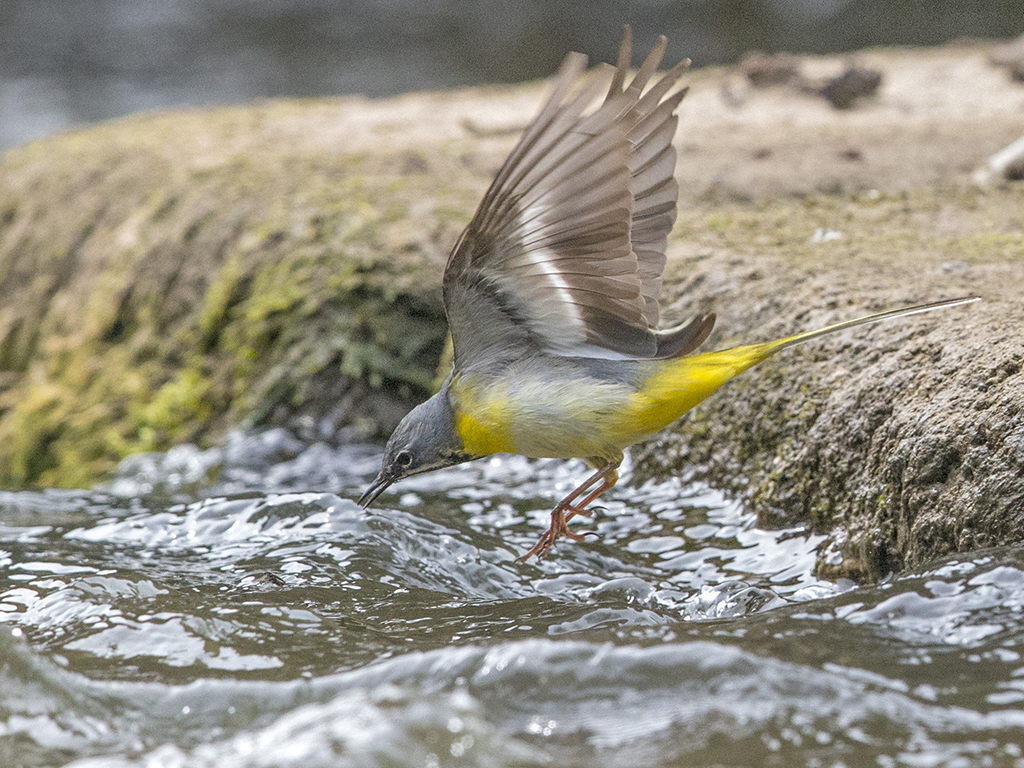
and while I was at it, the local Dipper population is quite good. it's love of fast running water and mountain streams make it more unusual in other parts of the UK.
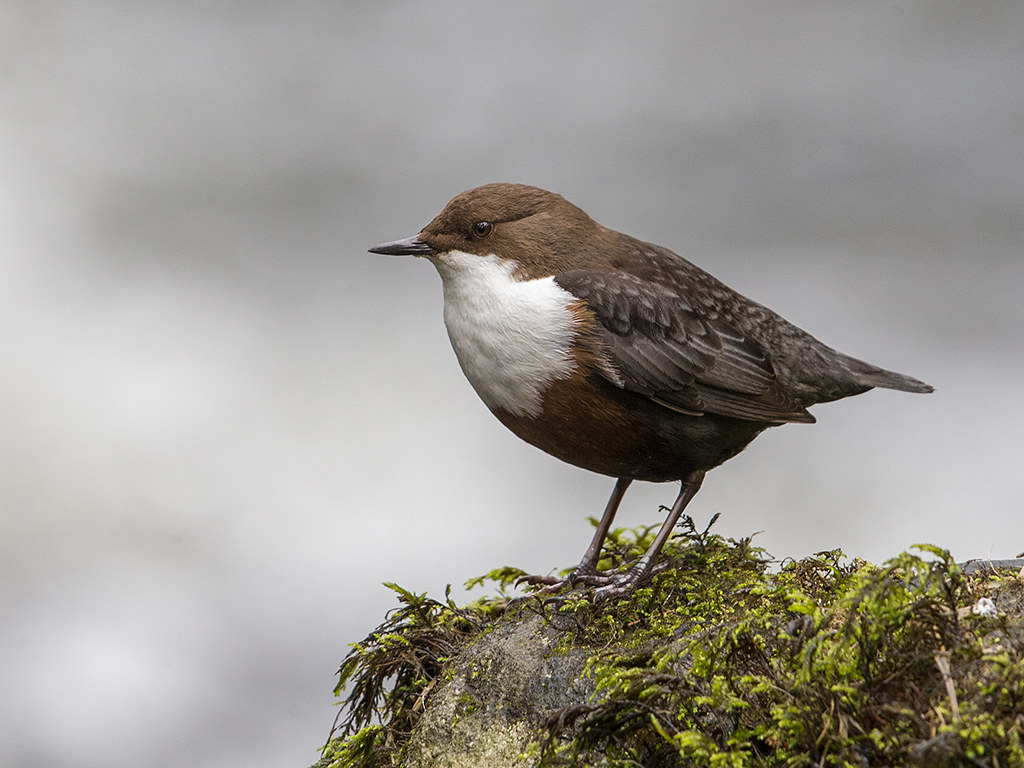
I have two regular haunts for photography. One is the garden, the other my local reserve.
Both can seem a little devoid of new interest at certain times of the year so when I heard there was a Great Egret at the reserve it was worth a visit.
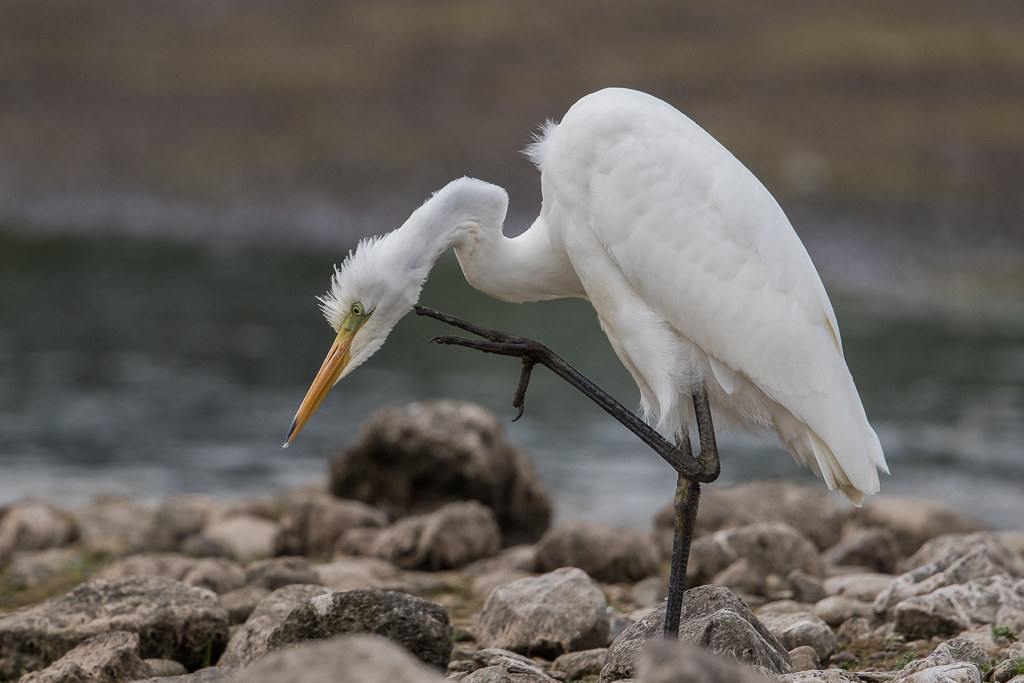
They may be common in other parts of the world but they are still a rarity in the UK although less so each passing year.
The local reserve used to be one of the best spots in the UK for photographing Stoats, particularly when they have a new litter who come out to play. Unfortunately sightings have become quite rare this last couple of years as it's presumed they have moved their dens after floods a couple of years back. I had one brief glimpse this year but managed to capture the action.
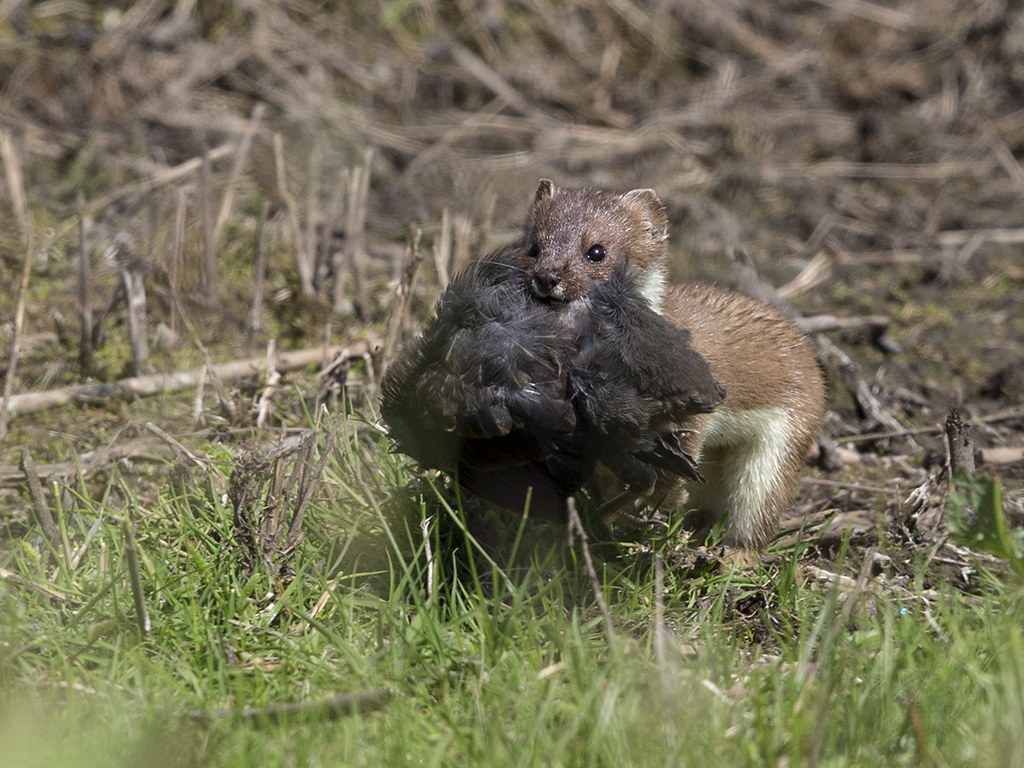
Back in the garden one mammal that was definitely an unwanted guest, well after he's been photographed anyway, was this Brown Rat.
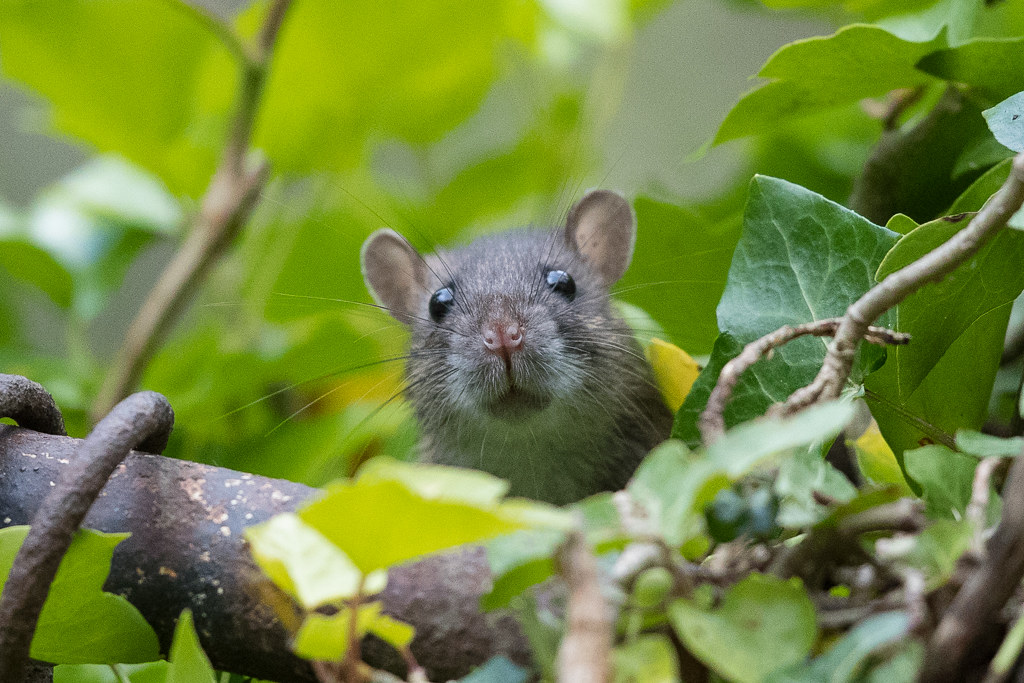
One of the downsides of feeding the birds, this fella had no hesitation of climbing to the feeders and stealing all he could.
That meant we withheld feeding for a few weeks until we were sure he was gone but with it went some of our birds too. They come back eventually though.
Mammal sightings in the UK are not that common. There are plenty about but most are nocturnal like the Badgers. This was only my 4th sighting ever and yet they live just down the road.
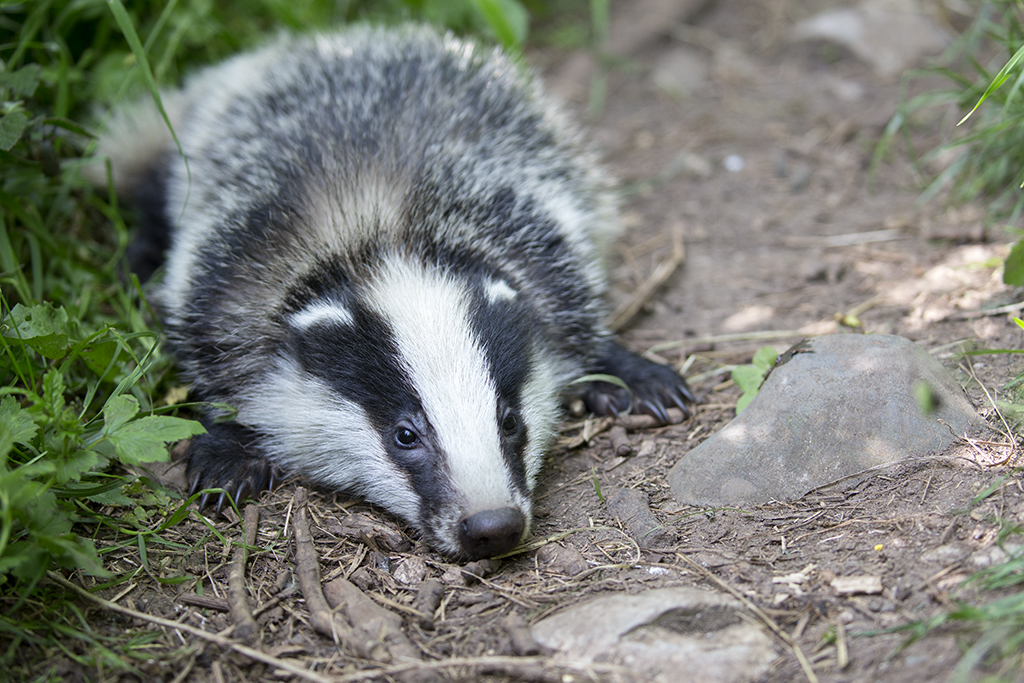
I don't think this youngster was long for this world I'm afraid.
This one had definitely already departed. A passer by spotted him lying by the side of the footpath so I decided to take advantage of his demise. Seeing a live Mole is a rarity as they spend nearly all their time underground. This near perfect specimen was as good as you will get so I gave him a brush and put him in one of the nearby mole hills for a more dignified and realistic shot. Nobody has noticed he's an ex-mole so I'm sharing my dark secret for the first time.
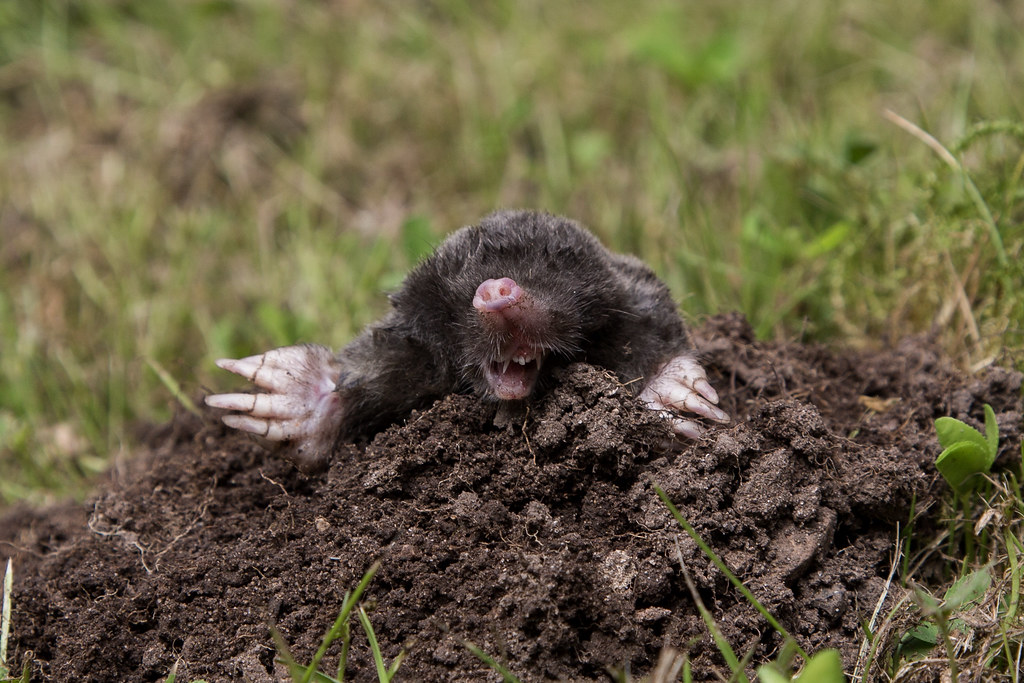
Well the UK summer can be a bit sparse for subjects and I'll try anything.
Come the Autumn and we do get the odd migrant dropping in on their way south.
Over in Anglesey, a Wryneck had been reported and I had to go. This is a species that was at the very top of my wanted list for several years. Along with pal Mike we had hoped to see one on trips to Hungary and Bulgaria but had failed.
Now we had a chance and what a chance it turned out to be! Usually they are seen on the East coast of the UK, not the West where I am. It was a 90 mile round trip but well worth the effort and I went twice in an attempt to get a decent shot.
After the first visit I was pleased to have at least got this shot.
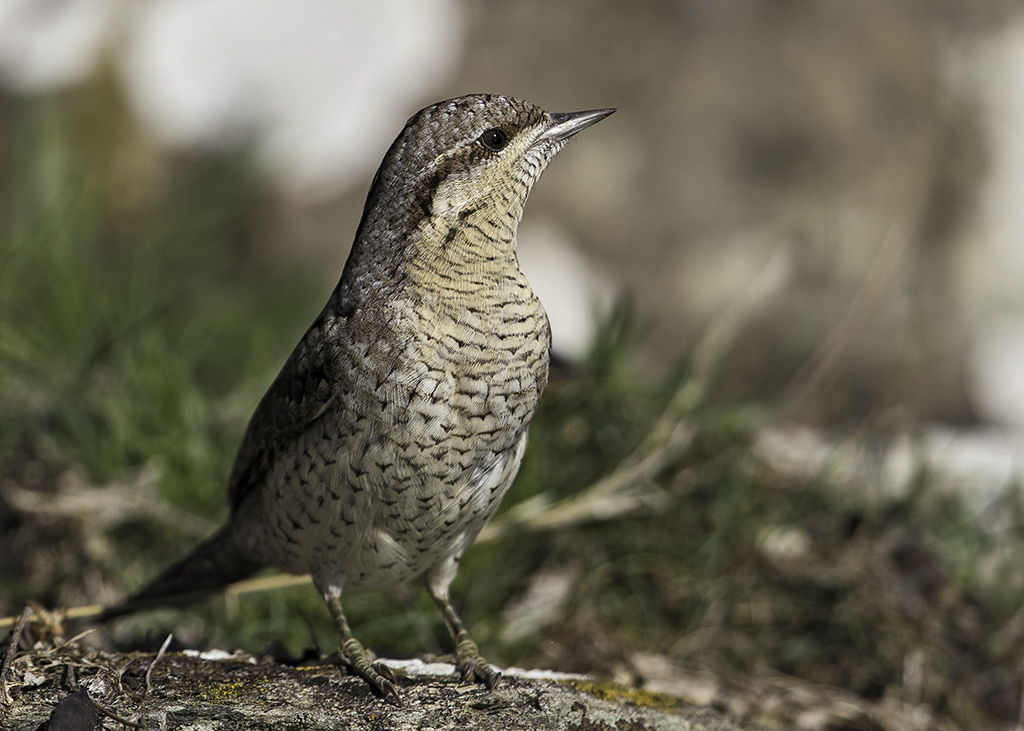
but the return was even better with the bird showing magnificently.
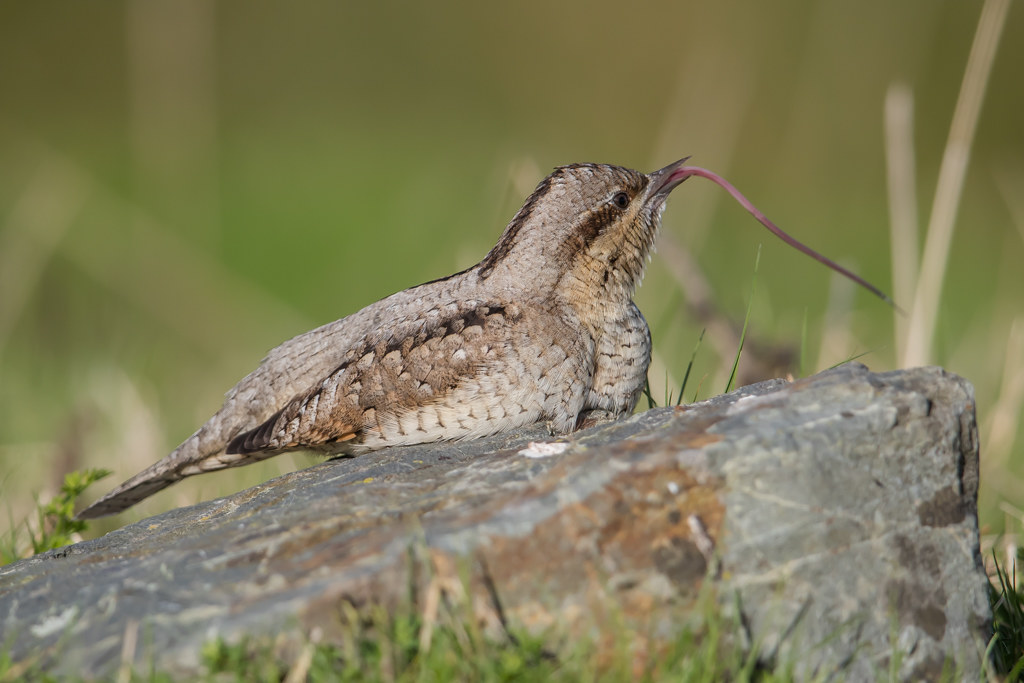
Just look at that tongue which it uses to probe for insects!
The bird was happy to hunt, groom, stretch
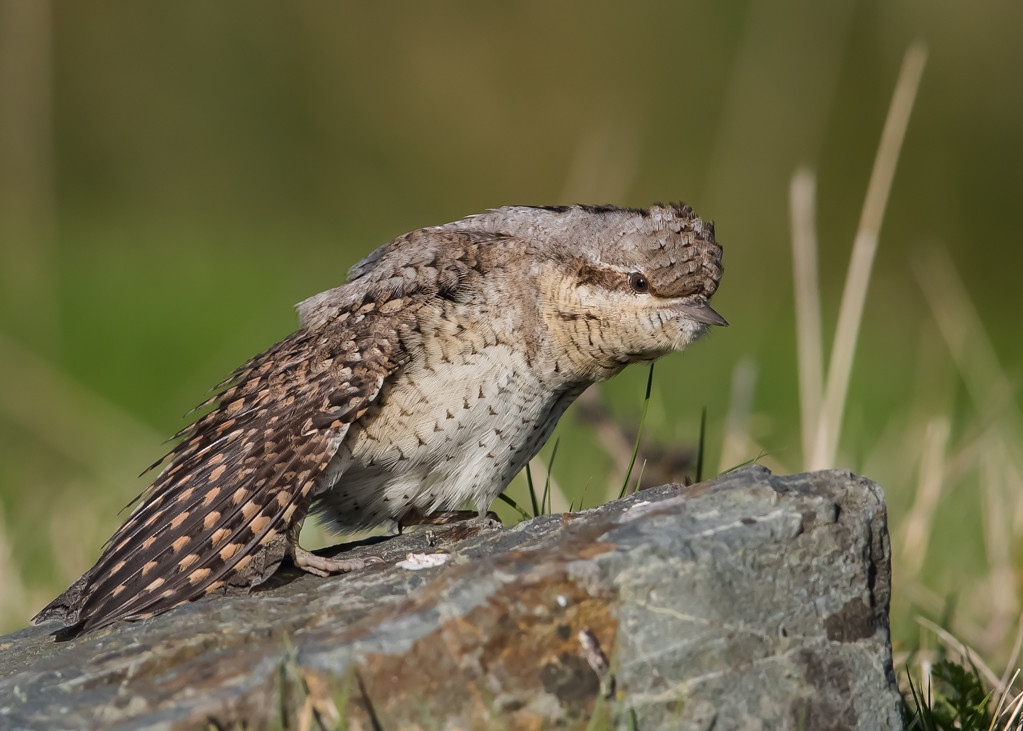
and even yawn.
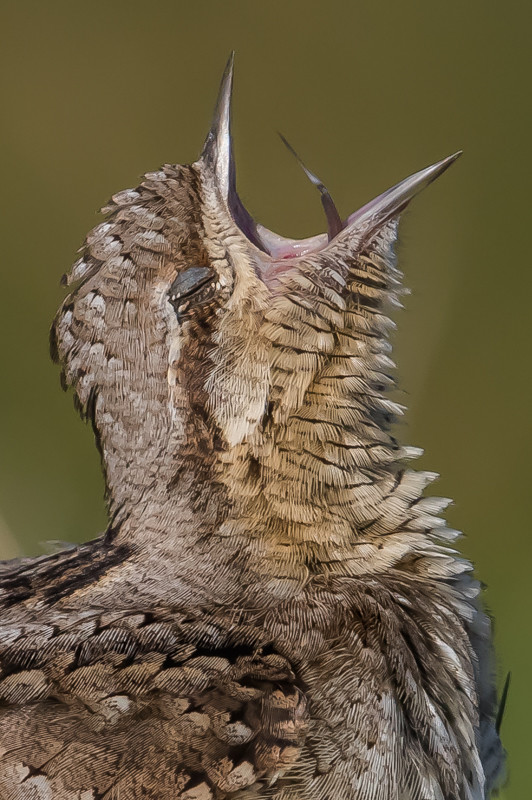
I felt it was a monkey off my back, but the wait and previous frustrations had been well worth it.
Within a fortnight we had another extremely rare visitor, this time a Booted Warbler right on the doorstep virtually.
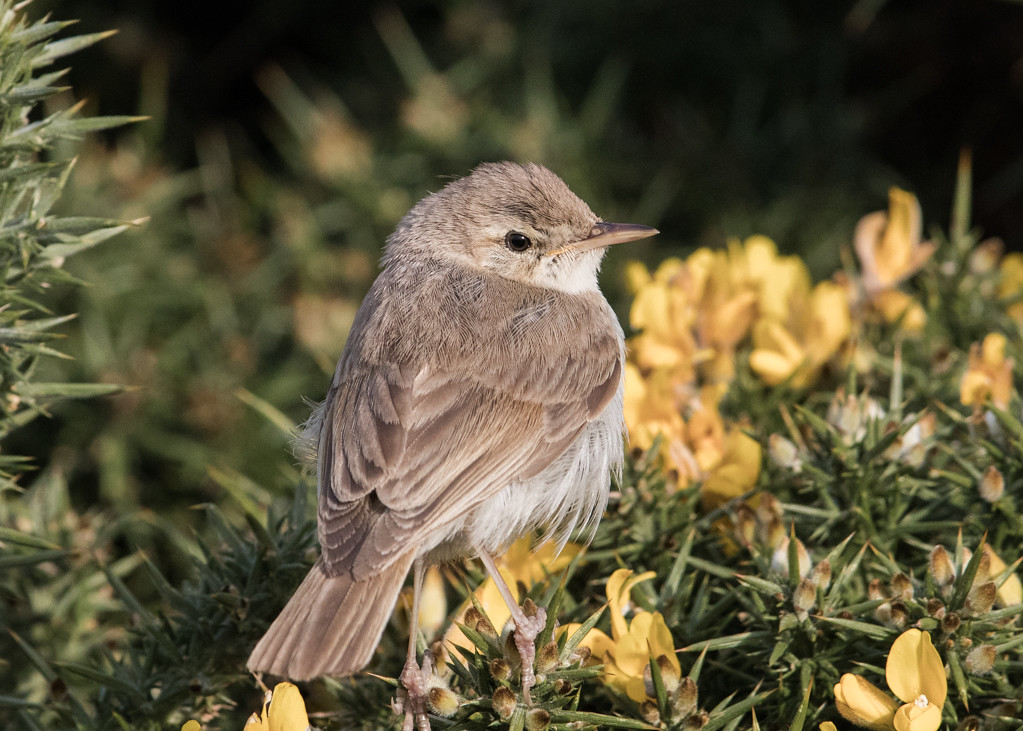
These are resident in Siberia in the summer and head south to India for the winter. This one was way off course.
During the week it was present birdwatchers from all over the UK arrived to take a look.
It was feeding well it seemed.
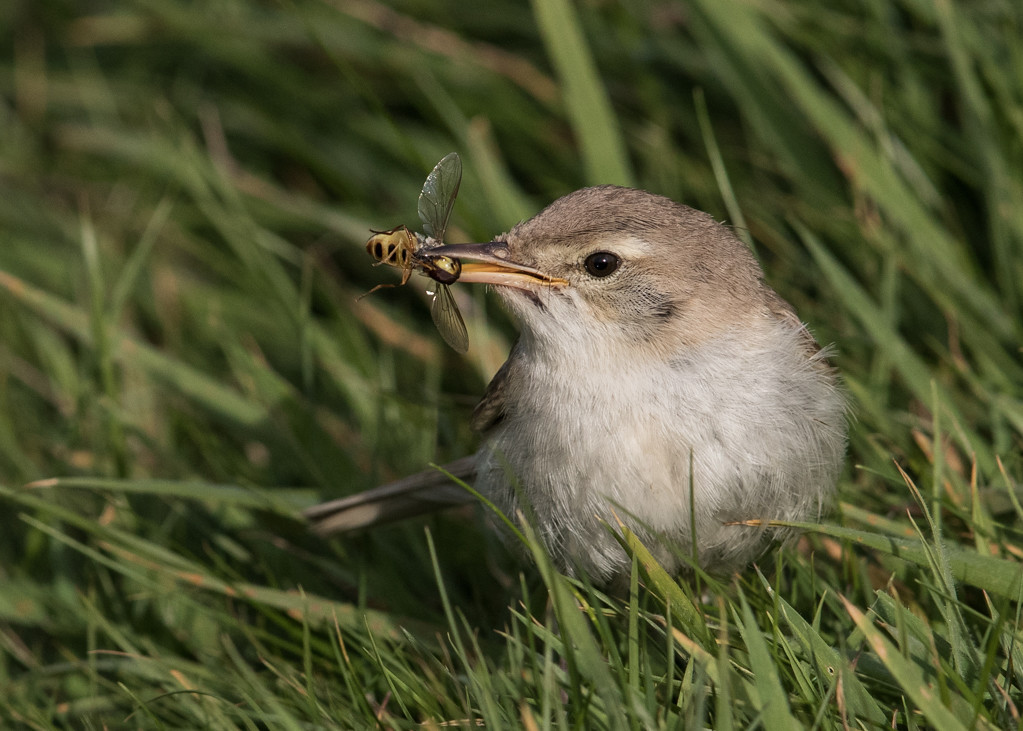
But it was loosing it's tail feathers.
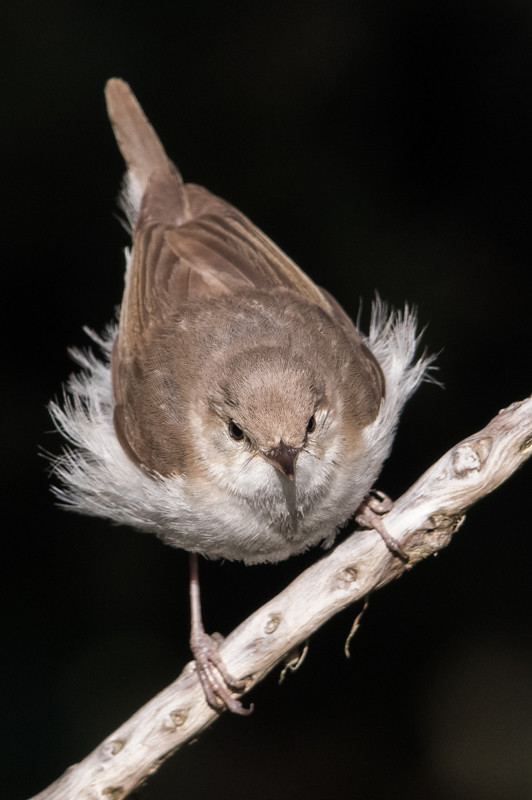
We already knew that it's chances of survival were slim but now it was more or less a certainty there would be no happy ending. Here one day, vanished the next, my guess is that it fell prey to a Sparrowhawk or such like.
Sadly that's what usually happens. Only yesterday we had a Hoopoe down at the local reserve. Again, very unusual birds in the UK. I didn't get around to going to see it as I have seen many on my foreign travels. I won't see this one for sure. Within 24 hours it had met it's demise, taken by a Peregrine Falcon in front of witnesses this time.
So that brings my local Welsh year up to date. Maybe not a great deal to some but the fact that unusual sightings are rarer and more difficult to come by makes them all the more precious. I have made a couple of trips in to England but that's all. With winter now really starting to take a grip it's time for me to migrate too.
Next stop The Gambia
until then...cheers!
No comments:
Post a Comment